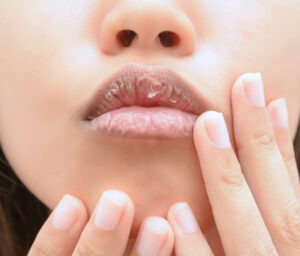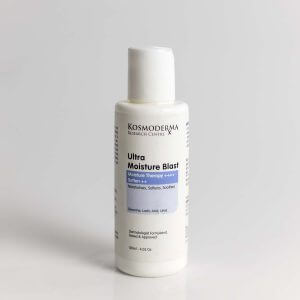Summer is a season that brings a lot of fun, sunshine, and outdoor activities. However, along with these enjoyable moments come a few challenges, one of which is chapped lips. Dry, cracked, and peeling lips can make you feel uncomfortable and even self-conscious. But the good news is that there are plenty of ways to get rid of chapped lips and enjoy the season with a soft and supple pout. In this blog post, we will discuss what chapped lips are, what causes them in summer, tips for softer lips, when to see a dermatologist, and conclude with some frequently asked questions about chapped lips.
What are Chapped Lips?

Chapped lips are a common condition characterised by dry, cracked, and sometimes painful lips. This condition can occur at any time of the year, but it is more prevalent in the winter months. However, many people also experience chapped lips in summer due to the heat, sun exposure, and dehydration. The skin on our lips is thin and delicate, and it lacks oil glands, which makes it prone to dryness and chapping.
Causes of Chapped Lips in Summer
Several factors can cause chapped lips in summer. Here are some of the most common ones:
Dehydration
Dehydration is one of the leading causes of chapped lips in summer. When you don't drink enough water, your body loses moisture, and your lips can become dry and cracked. This is because your lips don't have oil glands like the rest of your skin, which means they are more susceptible to dryness. To prevent dehydration, make sure you drink plenty of water throughout the day. Aim for at least eight glasses of water a day, and more if you're spending time outdoors or engaging in physical activity.
Sun Exposure
Prolonged sun exposure can damage the delicate skin on your lips, causing them to become dry, chapped, and even blistered. The sun's UV rays can cause inflammation and damage to the skin, leading to dryness and peeling. To protect your lips from the sun, wear a lip balm with SPF 15 or higher. Look for a lip balm with natural ingredients like beeswax, shea butter, and coconut oil, which can nourish and hydrate your lips while protecting them from the sun.
Environmental Factors
Exposure to wind, dust, and dry air can cause your lips to become chapped, especially if you spend a lot of time outdoors. The wind can strip the moisture from your lips, while dust and pollution can irritate the delicate skin. To protect your lips from chapping, wear a scarf or mask over your mouth and nose when you're outside. You can also apply a thin layer of petroleum jelly or a lip balm to your lips before going outside to create a barrier between your lips and the elements.
Licking Your Lips
Licking your lips may seem like a good way to moisten them, but it can actually make the problem worse. Saliva evaporates quickly, leaving your lips even drier than before. In addition, the enzymes in saliva can irritate the delicate skin on your lips, causing them to become inflamed and chapped. To prevent this problem, avoid licking your lips and use a lip balm or
moisturiser instead.
Allergies
Allergic reactions to certain foods or skincare products can cause your lips to become dry, itchy, and swollen. If you notice that your lips become chapped after eating certain foods or using certain skincare products, you may be allergic to them. To prevent this problem, avoid foods that trigger your allergies and use skincare products that are free of allergens and irritants.
Nutritional Deficiencies - Deficiency in water soluble B Complex vitamins such as B9 (Folic Acid), B2 (Riboflavin), B6 (Pyridoxine) and B12 as well as minerals like Iron and Zinc can also aggravate chapping of lips.
Tips for Softer Lips
If you want to get rid of chapped lips and enjoy the summer season with a soft and supple pout, here are some tips that can help:
Staying hydrated
It is one of the easiest and most effective ways to prevent chapped lips in summer. Drinking plenty of water throughout the day can help keep your body and lips hydrated, which in turn can help prevent dryness and cracking. It's important to avoid alcohol and caffeine, which can dehydrate your body and make your lips even drier.
Protecting your lips from the sun
It is crucial to prevent chapped lips in summer. Apply a lip balm with SPF before going out in the sun to protect your lips from harmful UV rays. Be sure to reapply the lip balm every few hours or after swimming to ensure continued protection.

Avoiding the temptation to lick your lips
It is important to prevent chapped lips. Instead, use a lip balm to moisturise them. Look for a lip balm with natural ingredients like beeswax, shea butter, and coconut oil, which can nourish and hydrate your lips.
Using a humidifier
It can help add moisture to the air and prevent your lips from becoming dry, especially if you spend a lot of time indoors in air-conditioned rooms. A humidifier can help restore the moisture in the air and help prevent your lips from drying out.
Exfoliating your lips
This can help remove dead skin cells and promote cell renewal, which can help keep your lips soft and smooth. Use a gentle lip scrub once or twice a week to exfoliate your lips. You can make a lip scrub at home using natural ingredients like sugar, honey, and olive oil.
Eating a healthy diet
It keeps your lips healthy and moisturised. A diet rich in vitamins and minerals can help promote overall health, including the health of your lips. Eat foods like avocados, nuts, and fish, which are rich in healthy fats and omega-3s, to help keep your lips soft and supple.
In most cases chapped lips can be treated with home remedies and over-the-counter products. However, in some cases, chapped lips can be a sign of an underlying medical condition that requires medical attention. If your chapped lips persist for more than two weeks despite home treatment or if they are accompanied by other symptoms such as bleeding, swelling, or infection, you should see a dermatologist. Your dermatologist may prescribe topical or oral medications to treat the underlying cause of your chapped lips.
Conclusion
Chapped lips can be a real nuisance, but they are a common problem that can be easily prevented and treated. By following the tips discussed in this article, you can keep your lips soft, supple, and hydrated all summer long. Remember to stay hydrated, protect your lips from the sun, avoid licking your lips, use a humidifier, exfoliate your lips, and eat a healthy diet. If your chapped lips persist or become severe, don't hesitate to see a dermatologist for proper diagnosis and treatment.
FAQs
Why are my lips always dry & peeling?
Dry and peeling lips can be caused by various factors such as dehydration, sun exposure, skin chapping, allergies, and certain medical conditions. To prevent and treat dry and peeling lips, drink plenty of water, protect your lips from the sun, avoid licking your lips, use a humidifier, exfoliate your lips, and eat a healthy diet.
How to cure chapped lips overnight?
To cure chapped lips overnight, apply a thick layer of a moisturising lip balm before going to bed. Look for a lip balm with natural ingredients like beeswax, shea butter, and coconut oil, which can nourish and hydrate your lips. You can also add a second layer of petroleum jelly to lock in the moisture overnight. This is called Lip slugging.
Can chapped lips be a sign of something serious?
In some cases, chapped lips can be a sign of an underlying medical condition such as an infection, eczema, or autoimmune conditions including psoriasis. If your chapped lips persist for more than two weeks despite home treatment or if they are accompanied by other symptoms such as bleeding, swelling, or infection, you should see a dermatologist for proper diagnosis and treatment.


